
Henry III, also known as Henry of Winchester, was King of England, Lord of Ireland, and Duke of Aquitaine from 1216 until his death in 1272. The son of King John and Isabella of Angoulême, Henry assumed the throne when he was only nine in the middle of the First Barons' War. Cardinal Guala Bicchieri declared the war against the rebel barons to be a religious crusade and Henry's forces, led by William Marshal, defeated the rebels at the battles of Lincoln and Sandwich in 1217. Henry promised to abide by Great Charter of 1225, a later version of the 1215 Magna Carta, which limited royal power and protected the rights of the major barons. His early rule was dominated first by Hubert de Burgh and then Peter des Roches, who re-established royal authority after the war. In 1230, the King attempted to reconquer the provinces of France that had once belonged to his father, but the invasion was a debacle. A revolt led by William Marshal's son Richard broke out in 1232, ending in a peace settlement negotiated by the Church.

Karen Anne Carpenter was an American singer and drummer who formed half of the highly successful duo Carpenters with her older brother Richard. With a distinctive three-octave contralto range, she was praised by her peers for her vocal skills. Carpenter's work continues to attract praise, including appearing on Rolling Stone's 2010 list of the 100 greatest singers of all time.

Superstar: The Karen Carpenter Story is a 1987 American experimental biographical film that portrays the last 17 years of singer Karen Carpenter's life, as she struggled with anorexia. Directed by Todd Haynes, the film uses Barbie dolls as actors, as well as documentaries and artistic footage. Superstar was co-written and co-produced by Haynes and Cynthia Schneider, with an unauthorized soundtrack consisting mostly of the hit songs of The Carpenters. It was filmed over a ten-day period at Bard College in the summer of 1985. Barry Ellsworth collaborated on the film and was the cinematographer for the Barbie themed interior segments of the film.
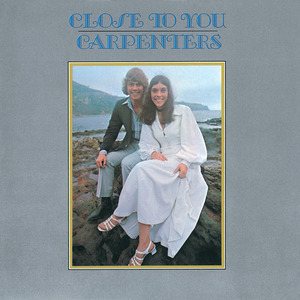
Close to You is the second studio album by the American music duo the Carpenters, released on August 19, 1970. In 2003, the album was ranked No. 175 on Rolling Stone's list of the 500 greatest albums of all time, maintaining the rating in a 2012 revised list. The album contains the hit singles "(They Long to Be) Close to You" and "We've Only Just Begun". The success of the title track earned Carpenters an international reputation. The album topped the Canadian Albums Chart and peaked at #2 on the U.S. Billboard albums chart. It was also successful in the United Kingdom, entering the top 50 of the official chart for 76 weeks during the first half of the 1970s.

Carpenter Gothic, also sometimes called Carpenter's Gothic or Rural Gothic, is a North American architectural style-designation for an application of Gothic Revival architectural detailing and picturesque massing applied to wooden structures built by house-carpenters. The abundance of North American timber and the carpenter-built vernacular architectures based upon it made a picturesque improvisation upon Gothic a natural evolution. Carpenter Gothic improvises upon features that were carved in stone in authentic Gothic architecture, whether original or in more scholarly revival styles; however, in the absence of the restraining influence of genuine Gothic structures, the style was freed to improvise and emphasize charm and quaintness rather than fidelity to received models. The genre received its impetus from the publication by Alexander Jackson Davis of Rural Residences and from detailed plans and elevations in publications by Andrew Jackson Downing.

"(They Long to Be) Close to You" is a song written by Burt Bacharach and Hal David with sections of the early version written by Cathy Steeves. The best-known version is that recorded by American duo the Carpenters for their second studio album Close to You (1970) and produced by Jack Daugherty. Released on May 14, 1970, the single topped both the US Billboard Hot 100 and Adult Contemporary charts. It also reached the top of the Canadian and Australian charts and peaked at number six on the charts of both the UK and Ireland. The record was certified gold by the Recording Industry Association of America (RIAA) in August 1970.
"For All We Know" is a soft rock song written for the 1970 film Lovers and Other Strangers, with music by Fred Karlin and lyrics by Robb Wilson and Arthur James, both from the soft rock group Bread. It was originally performed, for the film's soundtrack, by Larry Meredith and won the Academy Award for Best Original Song in 1971.
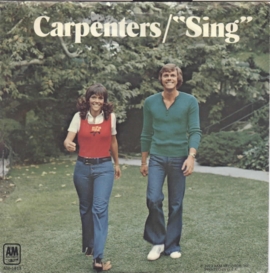
"Sing" is a 1971 song written by Joe Raposo for the children's television show Sesame Street as its signature song. In 1973, it gained popularity when performed by the Carpenters, a number 3 hit on the Billboard Hot 100.
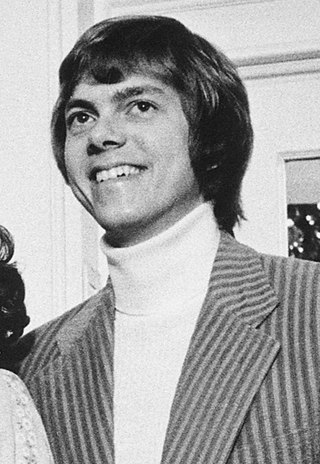
Richard Lynn Carpenter is an American musician, singer, songwriter, and record producer, who formed half of the sibling duo the Carpenters alongside his younger sister Karen. He had numerous roles in the Carpenters, including record producer, arranger, pianist, keyboardist, and songwriter, as well as joining with Karen on harmony vocals.
"Superstar" is a 1969 song written by Bonnie Bramlett and Leon Russell, that has been a hit for many artists in different genres in the years since. The best-known versions are by the Carpenters in 1971, Luther Vandross in 1983, and Sonic Youth in 1994.

"Solitaire" is a ballad written by Neil Sedaka and Phil Cody. Cody employs playing the card game of solitaire as a metaphor for a man "who lost his love through his indifference"—"while life goes on around him everywhere he's playing solitaire". The song is perhaps best known via its rendition by Carpenters. Another version by Andy Williams reached number 4 in the UK Singles Chart in 1973.

Ticket to Ride is the debut studio album by the American music duo Carpenters.
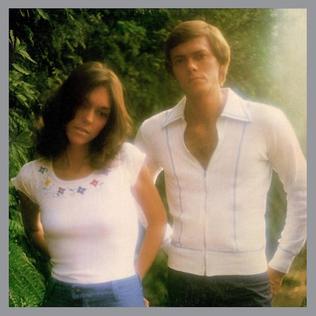
Horizon is the sixth studio album by the American musical duo the Carpenters. It was recorded at A&M Studios. The Carpenters spent many hours experimenting with different sounds, techniques and effects.
The Carpenters: Music, Music, Music is a Carpenters television special from 1980. It included guest stars such as Ella Fitzgerald, John Davidson and Nelson Riddle and his orchestra.

Pianist, Arranger, Composer, Conductor is the second solo album by American musician Richard Carpenter, released in 1998. It includes instrumental versions of popular songs of the Carpenters, and is dedicated to their deceased mother, Agnes Carpenter. The album contains two new songs, "All Those Years Ago" and "Karen's Theme", which was released as a single.

The Karen Carpenter Story is an American made-for-television biographical film about singer Karen Carpenter and the brother-and-sister pop music duo of which she was a part, The Carpenters. The film aired on CBS on January 1, 1989. Directed by Joseph Sargent, it starred Cynthia Gibb as Karen Carpenter, and Mitchell Anderson as her brother, Richard Carpenter, who served as a producer for the film as well as of the musical score. After the movie aired, CBS featured Read More About It segment with Richard Carpenter to recommend books associated with anorexia nervosa and bulimia.

"Goodbye to Love" is a song composed by Richard Carpenter and John Bettis. It was released by the Carpenters in 1972. On the Close to You: Remembering The Carpenters documentary, Tony Peluso stated that this was one of the first power ballads, if not the first, to have a fuzz guitar solo. "Goodbye to Love" was the first Carpenters hit written by Richard Carpenter and John Bettis.

The Carpenters were an American vocal and instrumental duo consisting of siblings Karen (1950–1983) and Richard Carpenter. They produced a distinctive soft musical style, combining Karen's contralto vocals with Richard's harmonizing, arranging, and composition. During their 14-year career, the Carpenters recorded 10 albums along with many singles and several television specials.
The Carpenters: A Christmas Portrait is a Christmas television special featuring The Carpenters that aired on ABC on December 19, 1978. It was the second Christmas TV special that the pop duo made and was taped in October 1978.
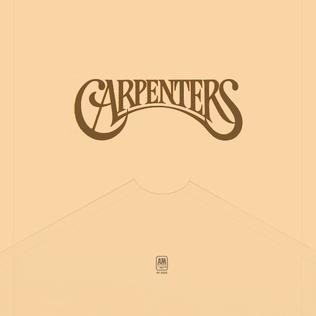
Carpenters is the third studio album by American music duo the Carpenters. Released on May 14, 1971, it was their most successful studio album, reaching number two on the Billboard 200 chart and number 12 in the UK, as well as being certified 4× Platinum by the RIAA. The album contained the hit songs "For All We Know", "Rainy Days and Mondays" and "Superstar".















